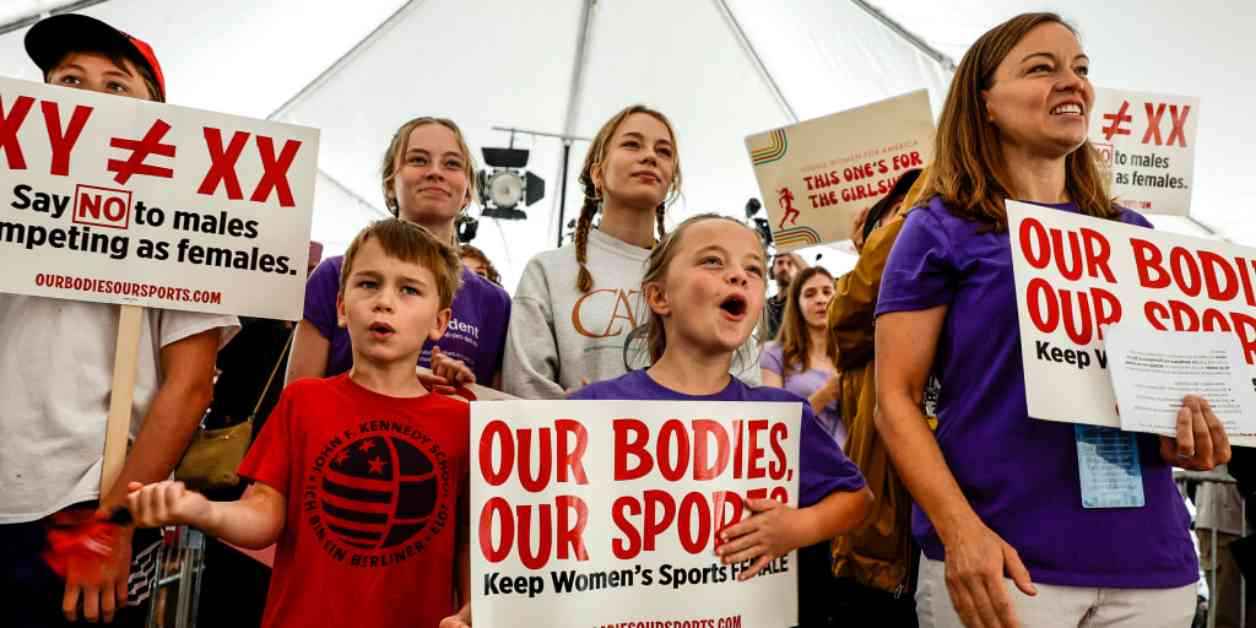The Trump Administration’s Title IX Investigation Team: A Closer Look at the Controversy
In a recent move that has sparked intense debate and backlash, the Departments of Education and Justice under the Trump administration have announced the creation of a new Title IX Special Investigations Team. This team is specifically tasked with addressing the issue of transgender women and girls participating in sports teams and using facilities designated for females. The goal, as stated by the departments, is to safeguard students, particularly female athletes, from what they describe as the negative impacts of gender ideology within school programs and activities.
The Significance of Title IX and the Growing Debate
Title IX, a civil rights law enacted in 1972, is designed to prevent sex-based discrimination in educational programs that receive federal funding. Over the years, it has been instrumental in promoting gender equality in various aspects of education, including sports. However, the intersection of transgender rights and women’s sports has emerged as a contentious issue in recent times. With more than half of U.S. states implementing measures to restrict transgender students’ participation in sports, the debate has intensified.
President Donald Trump’s executive order earlier this year further fueled the controversy by barring transgender women and girls from competing in female sports. The creation of the Title IX Special Investigations Team comes as a response to the increasing number of complaints related to these issues, aiming to streamline investigations and address alleged violations of women’s civil rights.
Expert Insights and Reactions to the New Initiative
Attorney General Pam Bondi highlighted the collaborative nature of the initiative, emphasizing the need to protect women’s sports and spaces from perceived threats. Education Secretary Linda McMahon, known for her role in the World Wrestling Entertainment (WWE), issued a stern warning to entities permitting transgender women to participate in women’s sports, signaling a more stringent enforcement of existing regulations.
However, LGBTQ advocacy groups have condemned the establishment of the Title IX Special Investigations Team, labeling it as a baseless and potentially wasteful endeavor driven by bias. They argue that singling out transgender athletes does not serve the broader goal of protecting all female participants. Concerns have also been raised about the invasive and costly measures that could be employed to verify athletes’ gender identities, posing additional hurdles for transgender students.
Challenges and Controversies Surrounding Transgender Student Athletes
While the exact number of transgender student athletes remains unclear, discussions around their inclusion in sports have amplified in recent months. During a congressional hearing in December, NCAA President Charlie Baker acknowledged the presence of fewer than 10 active NCAA athletes who identify as transgender. This limited representation underscores the complexity of the issue and the need for nuanced approaches to ensure inclusivity without compromising fairness.
In a related development, the Trump administration’s decision to withhold funding from the University of Pennsylvania due to its transgender athlete policies has stirred further debate. Despite the university’s assertion of compliance with NCAA and Ivy League guidelines, the funding pause reflects the broader challenges faced by institutions navigating the evolving landscape of transgender rights in sports.
As the controversy surrounding transgender participation in women’s sports continues to unfold, the creation of the Title IX Special Investigations Team represents a pivotal moment in the ongoing dialogue on gender equity and inclusivity in athletics. The implications of this initiative extend beyond individual cases, shaping the future of policies that govern sports participation and civil rights protections for all students.
With diverging perspectives and conflicting interests at play, the intersection of transgender rights and women’s sports underscores the complexities of achieving a balance between fairness, inclusivity, and regulatory compliance. The path forward requires thoughtful deliberation, informed by diverse voices and guided by principles of equity and respect for all individuals involved. The true test lies in our ability to navigate these challenges with empathy, understanding, and a commitment to upholding the values of equality and justice for all.














